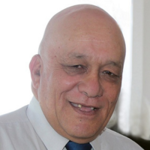2023 King’s Birthday Honours: Celebrating our members’ achievements
28 Jun 2023
Update
The RANZCP is delighted that five psychiatrists and our College Kaumātua have been recognized in the Australian and New Zealand King’s Birthday 2023 Honours Lists for their service to mental health and psychiatry. We thank them for their significant and tireless work to improve the mental health of our communities in Australia and New Zealand. Congratulations to all!
Member of the Order of Australia (AM)

Emeritus Professor Philip Boyce
President 2003 - 2005
Emeritus Professor Philip Boyce is an Emeritus Professor of Psychiatry at the University of Sydney and a Consultant Psychiatrist at Westmead Hospital. He maintains an outpatient clinic at the Ramsay Clinic Northside and serves on the Mental Health Review Tribunal. With a focus on mood disorders, his clinical and research interests revolve around the management of bipolar disorder during the perinatal period and identifying triggers for bipolar relapse. He has been involved in various perinatal psychiatry and bipolar disorder research projects throughout his career.
For over 30 years, he ran perinatal psychiatry services at the Nepean and Westmead hospitals in Western Sydney. Emeritus Professor Philip Boyce has held significant roles within the Royal Australian and New Zealand College of Psychiatrists, including President from 2003-2005. He has also chaired various committees and working groups, contributing to the development of clinical practice guidelines and the design of the College's competency-based curriculum. In recognition of his contributions, he received the College Medal of Honour in 2016.
Emeritus Professor Philip Boyce is an Emeritus Professor of Psychiatry at the University of Sydney and a Consultant Psychiatrist at Westmead Hospital. He maintains an outpatient clinic at the Ramsay Clinic Northside and serves on the Mental Health Review Tribunal. With a focus on mood disorders, his clinical and research interests revolve around the management of bipolar disorder during the perinatal period and identifying triggers for bipolar relapse. He has been involved in various perinatal psychiatry and bipolar disorder research projects throughout his career.
For over 30 years, he ran perinatal psychiatry services at the Nepean and Westmead hospitals in Western Sydney. Emeritus Professor Philip Boyce has held significant roles within the Royal Australian and New Zealand College of Psychiatrists, including President from 2003-2005. He has also chaired various committees and working groups, contributing to the development of clinical practice guidelines and the design of the College's competency-based curriculum. In recognition of his contributions, he received the College Medal of Honour in 2016.

Associate Professor Ravi Bhat
for significant service to medicine, and to rural psychiatry.
Associate Professor Ravi Bhat is the Divisional Clinical Director at Goulburn Valley Area Mental Health Service (GVAMHS) and an Associate Professor of Psychiatry at the University of Melbourne, Shepparton, VIC. With a medical degree from India and specialisation in psychiatry, he joined GVAMHS in 1999 and became a Fellow of the RANZCP in 2002. Associate Professor Bhat's research focuses on delirium in older adults, suicide, and mental health services in rural areas, resulting in nearly 50 scholarly publications.
He has actively served on state-wide and national committees, including the Mental Health Ministerial Advisory Committee of the Victorian Government and the Delirium Clinical Care Standard Topic Working Group. Associate Professor Ravi Bhat is an Interdisciplinary Clinical Advisory Group member and has held various positions within the RANZCP Victorian Branch Committee. In recognition of his contributions, Associate Professor Ravi Bhat was honoured with the RANZCP Victorian Branch Meritorious Service Award in 2021.
Associate Professor Ravi Bhat is the Divisional Clinical Director at Goulburn Valley Area Mental Health Service (GVAMHS) and an Associate Professor of Psychiatry at the University of Melbourne, Shepparton, VIC. With a medical degree from India and specialisation in psychiatry, he joined GVAMHS in 1999 and became a Fellow of the RANZCP in 2002. Associate Professor Bhat's research focuses on delirium in older adults, suicide, and mental health services in rural areas, resulting in nearly 50 scholarly publications.
He has actively served on state-wide and national committees, including the Mental Health Ministerial Advisory Committee of the Victorian Government and the Delirium Clinical Care Standard Topic Working Group. Associate Professor Ravi Bhat is an Interdisciplinary Clinical Advisory Group member and has held various positions within the RANZCP Victorian Branch Committee. In recognition of his contributions, Associate Professor Ravi Bhat was honoured with the RANZCP Victorian Branch Meritorious Service Award in 2021.
Medal of the Order of Australia (OAM)

Associate Professor Josephine Beatson
A/Professor Jo Beatson is Senior Clinical Advisor, Spectrum Service for Personality Disorder and Complex Trauma. She has contributed greatly to the fields of psychiatry and psychotherapy since becoming a psychiatrist in 1983. Arguably her most significant contribution has been through teaching about psychodynamic theory and practice, particularly as it relates to understanding the psychopathology and treatment of severe personality disorder. She has lectured on the Masters program for psychiatric trainees at Melbourne University since 2003, for the Melbourne University on-line program, and widely elsewhere.
Her work at Spectrum Personality Disorder Service since 2003 has been pivotal to improving the treatment for BPD in both public and private psychiatry. Providing training programs, publication of a textbook on BPD written for clinicians in Australasia, writing papers, supervision of individuals and teams treating severe borderline personality disorder (BPD), and research, have all contributed to this improvement.
In 2023 she was awarded a Medal of the Order of Australia (OAM) in the General Division, as well as awarded the RANZCP citation in 2020, the Vic Branch of the RANZCP Meritorious Service Award in 2017, and three Outstanding Teaching Awards for the University of Melbourne, Master of Psychological Medicine course.
But as always, she has learned most from treating patients in both public and private practice. As others have said, our patients deserve our thanks for paying to teach us.
A/Professor Jo Beatson is Senior Clinical Advisor, Spectrum Service for Personality Disorder and Complex Trauma. She has contributed greatly to the fields of psychiatry and psychotherapy since becoming a psychiatrist in 1983. Arguably her most significant contribution has been through teaching about psychodynamic theory and practice, particularly as it relates to understanding the psychopathology and treatment of severe personality disorder. She has lectured on the Masters program for psychiatric trainees at Melbourne University since 2003, for the Melbourne University on-line program, and widely elsewhere.
Her work at Spectrum Personality Disorder Service since 2003 has been pivotal to improving the treatment for BPD in both public and private psychiatry. Providing training programs, publication of a textbook on BPD written for clinicians in Australasia, writing papers, supervision of individuals and teams treating severe borderline personality disorder (BPD), and research, have all contributed to this improvement.
In 2023 she was awarded a Medal of the Order of Australia (OAM) in the General Division, as well as awarded the RANZCP citation in 2020, the Vic Branch of the RANZCP Meritorious Service Award in 2017, and three Outstanding Teaching Awards for the University of Melbourne, Master of Psychological Medicine course.
But as always, she has learned most from treating patients in both public and private practice. As others have said, our patients deserve our thanks for paying to teach us.

The late Dr Edgar Freed
for service to medicine as a psychiatrist.
Dr Edgar Freed graduated from the University of Witwatersrand, SA in 1961 with an MBBCh, and specialised in psychiatry. He achieved Fellowships with the Faculty of Psychiatry in South Africa, the UK Royal College of Psychiatrists, and in 1978, he immigrated to Australia and became a Fellow of the RANZCP. Dr Freed served as a Senior Staff Specialist at St Vincent's Hospital for 18 years and later practiced privately at The Sydney Clinic until his retirement in 2015. Throughout his career, he held numerous positions, including chair and member of medical and drug advisory committees and served in various roles for professional associations. He has received several awards, including the RANZCP Meritorious Service Award in 2017 and the Marjory Johnston Award for Service to the Mentally Ill and their ARAFMI in 1995.
Dr Freed was known for his humility, kindness, and dedication to the care of people with mental illness. He is survived by his wife, four children, and seven grandchildren.
Dr Edgar Freed graduated from the University of Witwatersrand, SA in 1961 with an MBBCh, and specialised in psychiatry. He achieved Fellowships with the Faculty of Psychiatry in South Africa, the UK Royal College of Psychiatrists, and in 1978, he immigrated to Australia and became a Fellow of the RANZCP. Dr Freed served as a Senior Staff Specialist at St Vincent's Hospital for 18 years and later practiced privately at The Sydney Clinic until his retirement in 2015. Throughout his career, he held numerous positions, including chair and member of medical and drug advisory committees and served in various roles for professional associations. He has received several awards, including the RANZCP Meritorious Service Award in 2017 and the Marjory Johnston Award for Service to the Mentally Ill and their ARAFMI in 1995.
Dr Freed was known for his humility, kindness, and dedication to the care of people with mental illness. He is survived by his wife, four children, and seven grandchildren.
Member of the New Zealand Order of Merit (MNZM)

Dr Siale Foliaki
for services to mental health and the Pacific community.
Dr Foliaki is a consultant psychiatrist at Te Whatu Ora Counties Manukau and Clinical Lead Psychiatrist, Pasifika Health for Whakarongorau Aotearoa, New Zealand Telehealth Services. He has played instrumental roles in establishing various Pacific health organizations, including the Tongan Health Society, Faleola Mental Health Services for Pacific adults, and Vaka Toa for Pacific children and adolescents in Counties Manukau DHB. Dr. Foliaki serves on the Board of Vaka Tuatua and chairs the Pacific Information Advocacy Support Services (PIASS) Trust. As the lead Pacific researcher in Te Rau Hinengaro, the New Zealand Mental Health Survey, he has contributed significantly to mental health policy development.
Dr Foliaki has also held policy roles with the Ministry of Health and the Mental Health Commission, where he focused on addressing the mental health needs of Pacific peoples in New Zealand. He played a crucial role in drafting the Cultural Competency Guidelines for Pacific People for the New Zealand Medical Council.
Dr Foliaki is a consultant psychiatrist at Te Whatu Ora Counties Manukau and Clinical Lead Psychiatrist, Pasifika Health for Whakarongorau Aotearoa, New Zealand Telehealth Services. He has played instrumental roles in establishing various Pacific health organizations, including the Tongan Health Society, Faleola Mental Health Services for Pacific adults, and Vaka Toa for Pacific children and adolescents in Counties Manukau DHB. Dr. Foliaki serves on the Board of Vaka Tuatua and chairs the Pacific Information Advocacy Support Services (PIASS) Trust. As the lead Pacific researcher in Te Rau Hinengaro, the New Zealand Mental Health Survey, he has contributed significantly to mental health policy development.
Dr Foliaki has also held policy roles with the Ministry of Health and the Mental Health Commission, where he focused on addressing the mental health needs of Pacific peoples in New Zealand. He played a crucial role in drafting the Cultural Competency Guidelines for Pacific People for the New Zealand Medical Council.

Mr Ronald Baker
RANZCP Kaumātua, for services to Māori mental health.
Mr Ron Baker (Ngāti Porou, Ngāi Tāmanuhiri, Whānau o Rongomaiwahine) has contributed to better mental health care for Māori for more than 60 years.
Mr Baker was a Charge Nurse at Whaiora, the first Māori Mental Health Unit, established at Tokanui Hospital in the 1980s. He was part of a collective who were determined to establish further Kaupapa Māori Mental Health Units throughout New Zealand. Manawanui was founded, a purpose-built Marae for Māori who experience mental illness and addiction in Auckland. He has travelled with his wife to deliver Te Ihi Ora, a programme aimed to educate around suicide prevention, steeped in Matauranga Māori. He has helped guide and train others in the field to address the impacts of suicide on Māori, particularly in the East Coast where Māori suicide rates are extremely high. He has provided support and mentorship for a mental health programme which will address healing in a cultural way. This has sparked further community groups being formed to address the impacts of suicide and mental health on Māori. He has been Kaumatua of several organisations including of Manwanui since 2010 and of the College of Mental Health Nurses since 2005. Mr Baker was made a Life Member of the College of Mental Health Nurses.
Mr Ron Baker (Ngāti Porou, Ngāi Tāmanuhiri, Whānau o Rongomaiwahine) has contributed to better mental health care for Māori for more than 60 years.
Mr Baker was a Charge Nurse at Whaiora, the first Māori Mental Health Unit, established at Tokanui Hospital in the 1980s. He was part of a collective who were determined to establish further Kaupapa Māori Mental Health Units throughout New Zealand. Manawanui was founded, a purpose-built Marae for Māori who experience mental illness and addiction in Auckland. He has travelled with his wife to deliver Te Ihi Ora, a programme aimed to educate around suicide prevention, steeped in Matauranga Māori. He has helped guide and train others in the field to address the impacts of suicide on Māori, particularly in the East Coast where Māori suicide rates are extremely high. He has provided support and mentorship for a mental health programme which will address healing in a cultural way. This has sparked further community groups being formed to address the impacts of suicide and mental health on Māori. He has been Kaumatua of several organisations including of Manwanui since 2010 and of the College of Mental Health Nurses since 2005. Mr Baker was made a Life Member of the College of Mental Health Nurses.
More news & views
The RANZCP Board has approved a change to membership criteria under which specialist international m...
RANZCP trainees or Fellows who are passionate about training or practising psychiatry in a rural loc...
 14 November 2025
14 November 2025
Leading psychiatrists from across Aotearoa New Zealand and Australia have joined senior public healt...